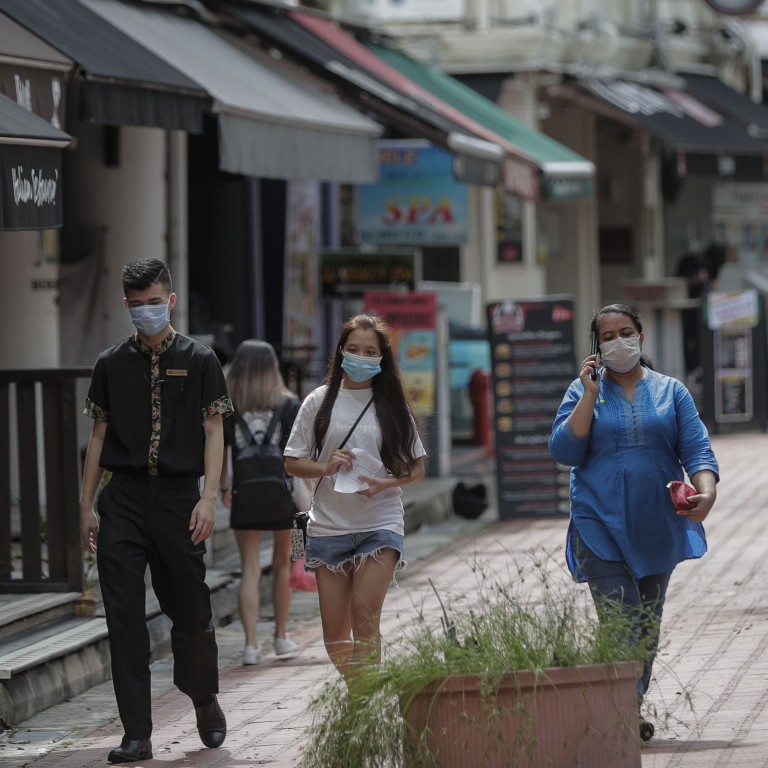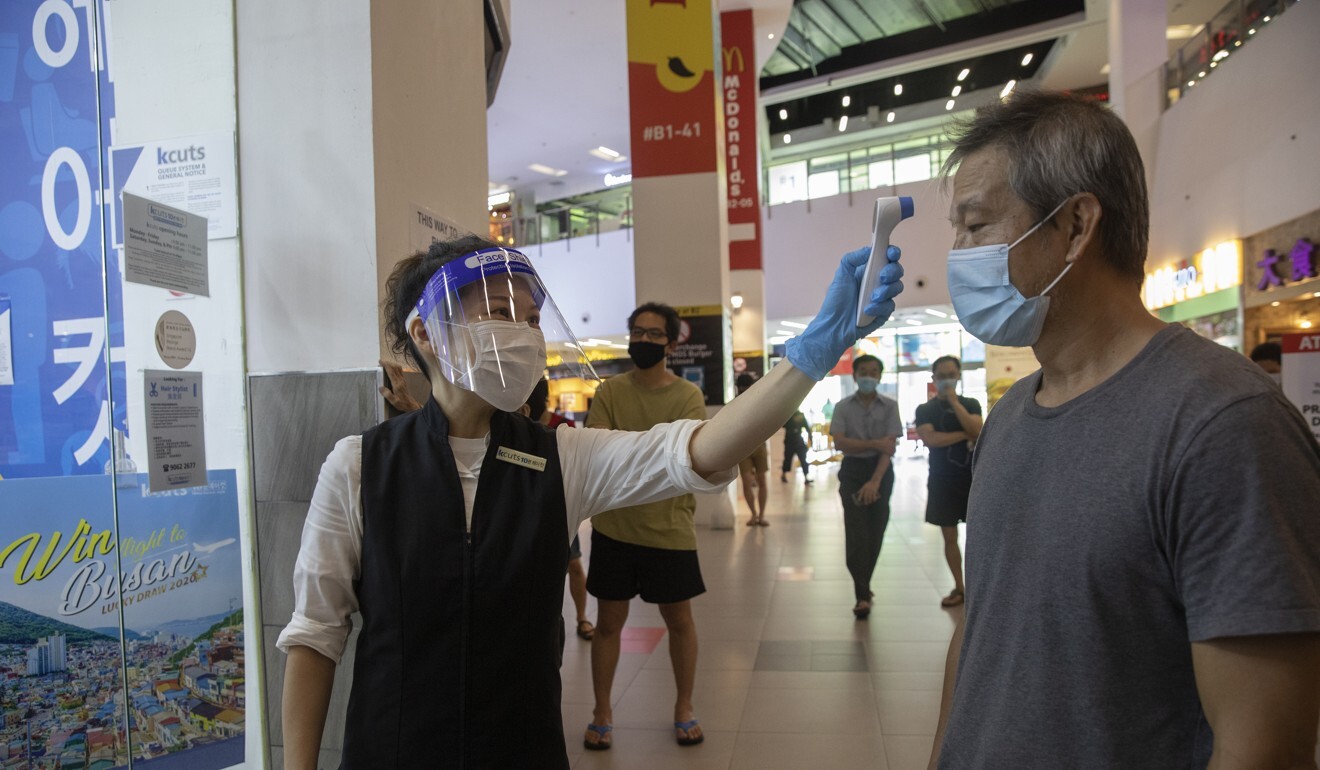
Coronavirus: Singapore allows some schools, trades to resume activities in June, in ‘first phase’ of reopening
- Workers from ‘critical, low-risk economic activities’, such as senior care services, manufacturing and finance will be able to resume work, health minister says
- Singaporeans will also be able to visit their parents or grandparents as the country enters a cautious ‘first phase’ of reopening
This would include reopening certain schools and some health care services, including specialist outpatient, medical and dental services, and chronic management disease services. Senior care services and activity centres are also set to open. Some restrictions will also be eased, such as how each household will be allowed to visit their parents or grandparents who are not staying with them, said the health minister.
Gan said these moves would form the first phase of Singapore’s three-phase plan, or what he called a “safe opening”.

“We have been progressively easing some of the restrictions since May 5, taking a cautious, step-by-step approach, as we continue to closely monitor the number of new cases in the community,” Gan said.
“This will be done in phases to reduce the risk of a second wave of cases of infections as many countries have experienced after they have lifted their control measures,” he said.
Phase two would be a “safe transition period”, which would see most restrictive measures rolled back and more social activities resumed. This phase may involve allowing Singaporeans to dine in, and retail shops and sports facilities may open, but Gan said it “may take several months”.
The third phase would be the country’s new normal – or a “safe nation”, he said.

Trade and industry minister Chan Chun Sing said that firms in sectors such as manufacturing and production, finance and insurance, wholesale trade, transport and storage, professional services, and some selected services like motor and air con servicing would be allowed to resume work on June 2.
Other considerations were also being taken into account, Chan said, with those with a “lower risk setting with a controlled environment” allowed to resume activities first. This would involve firms with limited or no interactions with the public.
Chan said, however, that those who could work from home should continue with that arrangement, unless workers had to use machinery or special terminals as part of their work.
Even so, companies slated to reopen in June would need to impose stricter measures and safe-distancing measures, such as establishing a contact-tracing system, ensuring safe transport arrangements and to avoid the cross deployment of staff between different teams.
“We expect about one-third of our workers to be able to resume work on site, and the rest of the workers continue to work from home. This will allow three-quarters of our economy to resume normal operations,” said Chan, who added that about 17 per cent of Singapore’s workers were currently providing essential services.
Chan suggested that businesses which did not fall under categories for the June reopening, such as the food and beverage sector, could take time to ready additional measures to ensure the safe resumption of activities. Others in the social entertainment sector could also rethink their business models as pre-Covid activities were “unlikely to resume as per normal”, he said.
Many have been hoping that at the end of the circuit breaker, they will be able to go out freely ... Unfortunately, all of these activities will have to wait.
Ong Ye Kung, the education minister, said schools could not open “with a big bang”, adding that a road map would be used to determine who returned to school first. For example, special education schools would be prioritised, as well as the graduating batch of students sitting for national examinations. Pre-schools would also see a gradual reopening.
“Eventually when we complete the road map, all [students] will return. But as a start, it’s better to thin out the population in schools,” he said. One idea to have a weekly rotation of students who would attend school on one week, and while the other attended home-based learning.
Singapore says herd immunity is ‘too big a price’ to contain pandemic
As of Tuesday, Singapore had about 29,000 coronavirus infections, with most of the new cases being low-wage migrant workers living in cramped dormitories.
The announcement on Tuesday came as the city state’s partial lockdown – described by the authorities as a “circuit breaker” – was set to expire on June 1, as the number of infections stabilised.
It followed an announcement last Friday that the government would allow some workers from the construction sector to resume operations. About 5 per cent or 20,000 construction workers had earlier been allowed to continue activities deemed essential, and the authorities expected this number to increase to 10 per cent next month.
Even as restrictions were being eased, Lawrence Wong, the national development minister who co-chairs the coronavirus task force, sought to taper expectations that Singaporeans could go out “freely” once the circuit breaker ended.
Why aren’t Singaporeans using the TraceTogether app?
“I know Singaporeans will be disappointed. Many have been hoping that at the end of the circuit breaker, they will be able to go out freely to socialise with their friends, to meet their families and relatives, and even dine together,” Wong said.
“Unfortunately, all of these activities will have to wait,” he said. “We have to do this in a very careful and calibrated manner, because we do not want to risk a flaring up of the virus again and importantly, we do not want to sacrifice the efforts that all of us have put in.”
Meanwhile, the city state is also concurrently battling a jump in dengue virus transmissions. The national environment agency reported some 529 dengue cases last week, up from the 300-odd weekly cases in the first four months of this year, noting that the higher transmission numbers was of concern.
Help us understand what you are interested in so that we can improve SCMP and provide a better experience for you. We would like to invite you to take this five-minute survey on how you engage with SCMP and the news.

